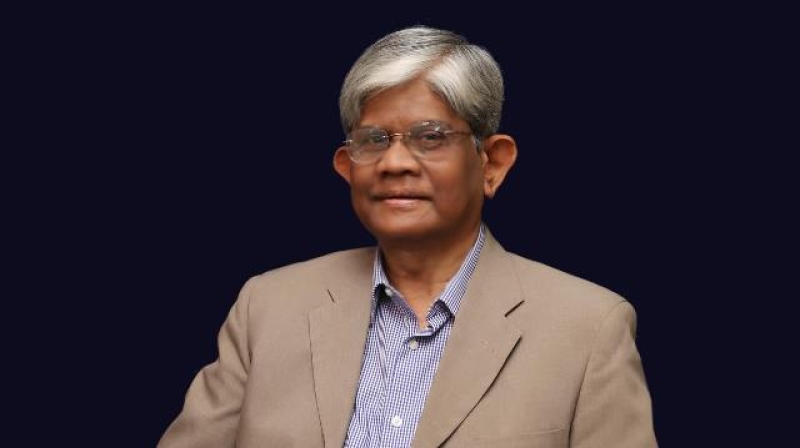- Nation Votes Tomorrow in 13th Poll, Referendum |
- Key in your hands, use it wisely: Prof Yunus tells voters |
- Yunus Urges Voters to Shape a ‘New Bangladesh’ |
- Bangladesh Polls: Campaign Ends as Voters Weigh Pledges |
- Bangladesh Heads to First Gen Z-Driven Competitive Poll |
“Taxpayers shouldn’t feel uneasy when they see you”: Finance Adv to Tax officials

"Transparency & accountability in tax collection is important "
Dhaka, Sept 14 - Finance Adviser Dr. Salehuddin Ahmed on Saturday urged tax officials to change their approach to ensure that taxpayers no longer fear interactions with the revenue department, as the government pushes forward with critical reforms in the banking and revenue sectors.
“Taxpayers should not feel apprehensive when they see you. There’s a tendency among ordinary people to avoid tax officials to escape harassment. Please assure them they have nothing to fear,” Dr. Salehuddin said during a discussion on the changes to direct taxation through Finance Act 2024 at the National Board of Revenue (NBR) Multipurpose Hall at Agargaon in Dhaka.
Highlighting the pressing challenges ahead, the adviser emphasized that reforms in the revenue and banking sectors are crucial for the country’s economic stability. “The immediate challenges before us are reforms in the revenue sector and banking. Political reforms will follow,” he noted.
He also stressed the importance of transparency and accountability in tax collection. “Collect as much tax as needed to meet national demands, but do it without putting undue pressure on ordinary citizens. People should feel reassured when they deal with you and be motivated to pay taxes voluntarily,” he added.
Dr. Salehuddin reiterated the government’s commitment to financial sector reforms, emphasizing the urgent need for cooperation from tax officials.
He also pointed out that Bangladesh aims to be more self-reliant, although the country still needs to import resources.
Regarding international collaboration, Dr. Salehuddin said that a six-member U.S. delegation is expected to prioritize economic discussions during meetings in the coming days. “The U.S. might assist us according to our needs. We’ve already started tax reforms and motivated our officials, which may instill some confidence,” he stated.
Addressing concerns about progress, he assured that notable steps have been taken in financial reforms, including eliminating provisions for whitening black money and initiating banking sector reforms.
The Adviser underscored the government's focus on minimizing wasteful spending and ensuring that public funds are used responsibly. “Many think the government collects taxes only to host events, but we aim to keep such expenditures minimal,” he affirmed.
He acknowledged that despite efforts to mobilize internal resources, external funding remains necessary to cover the growing budget deficit. “We’ll try to meet our needs with our own resources, but external funding and technical assistance are essential,” he explained, cautioning against over-reliance on foreign aid.
“There’s a saying: if your hands are in someone’s pocket, you have to move when they move. We are feeling that in many aspects,” the Adviser said, emphasizing the need for self-reliance and less dependency on international donors.
Addressing the imbalance in Bangladesh’s tax structure, Dr. Salehuddin highlighted the importance of direct taxation. “Direct tax is crucial, yet its share in our revenue is relatively small compared to the higher reliance on indirect taxes like VAT, which affects everyone equally,” he pointed out. The Adviser called for a more progressive tax system, where those who can afford to pay more contribute a fairer share.
“Our income tax system is somewhat regressive, with companies under the Large Taxpayers Unit (LTU) feeling especially burdened. We must ensure the tax burden is distributed fairly, based on equity and the ability to pay,” the Adviser asserted.
NBR Chairman M. Abdur Rahman Khan echoed Dr. Salehuddin’s calls for reform, emphasizing the importance of ensuring that public revenue is used effectively. “People want to know that the taxes they pay are being spent properly. We are beginning to see that change, but we must remain cautious about our expenditures,” Khan said.
He urged tax officials to support private sector growth by fostering a business-friendly environment and refraining from exerting undue pressure during tax collection. “Our laws and regulations should be followed rigorously, but we must also facilitate the growth of taxpayers,” he emphasized.
The NBR chairman also called for significant reforms to tax laws, particularly addressing the issue of excessive tax expenditures. “We must stop unnecessary tax cuts that lead to revenue losses,” he warned, adding that the government should not impose additional tax burdens to cover shortfalls.
Dr. Salehuddin reflected on the historic opportunity for Bangladesh to chart a new course, following the “July revolution” driven by students and the public. “We must leave behind past practices and focus on building a new Bangladesh,” he said.
The discussion, organized by the Bangladesh Civil Service (Taxation) Association, was chaired by its president, M. Lutful Azim. Other key speakers included Tax Policy Member A.K.M. Badiul Alam and Tax Administration and Human Resource Management Member G.M. Abul Kalam Kaikobad.-UNB

